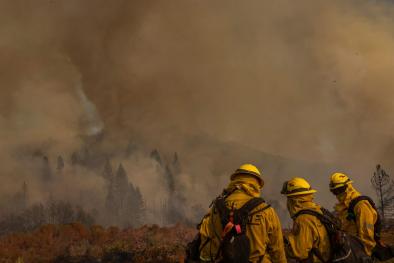Unprecedented climate events: Historical changes, aspirational targets, and national commitments
Study key findings & significance
- This study expands on previous work analyzing historical climate data, which demonstrated how greenhouse gas emissions have increased the probability of recording-breaking hot, wet and dry events in the present climate.
- Now, the group analyzed similar models to estimate the probability of extreme weather events in the future under two scenarios of the Paris Agreement: increases of 1.5 to 2 degrees if countries live up to their aspirations, or 2 to 3 degrees if they meet the commitments that they have made.
Author quotes
"In addition to not meeting the global temperature target, those commitments also imply substantial increase in the probability of record-setting events," said Noah Diffenbaugh, a Stanford University climate researcher and the new study's lead author. "Not only hot events but wet events, and also in other regions of the world, dry events as well."
Abstract
The United Nations Paris Agreement creates a specific need to compare consequences of cumulative emissions for pledged national commitments and aspirational targets of 1.5° to 2°C global warming. We find that humans have already increased the probability of historically unprecedented hot, warm, wet, and dry extremes, including over 50 to 90% of North America, Europe, and East Asia. Emissions consistent with national commitments are likely to cause substantial and widespread additional increases, including more than fivefold for warmest night over ~50% of Europe and >25% of East Asia and more than threefold for wettest days over >35% of North America, Europe, and East Asia. In contrast, meeting aspirational targets to keep global warming below 2°C reduces the area experiencing more than threefold increases to <10% of most regions studied. However, large areas—including >90% of North America, Europe, East Asia, and much of the tropics—still exhibit sizable increases in the probability of record-setting hot, wet, and/or dry events.
Related Content



